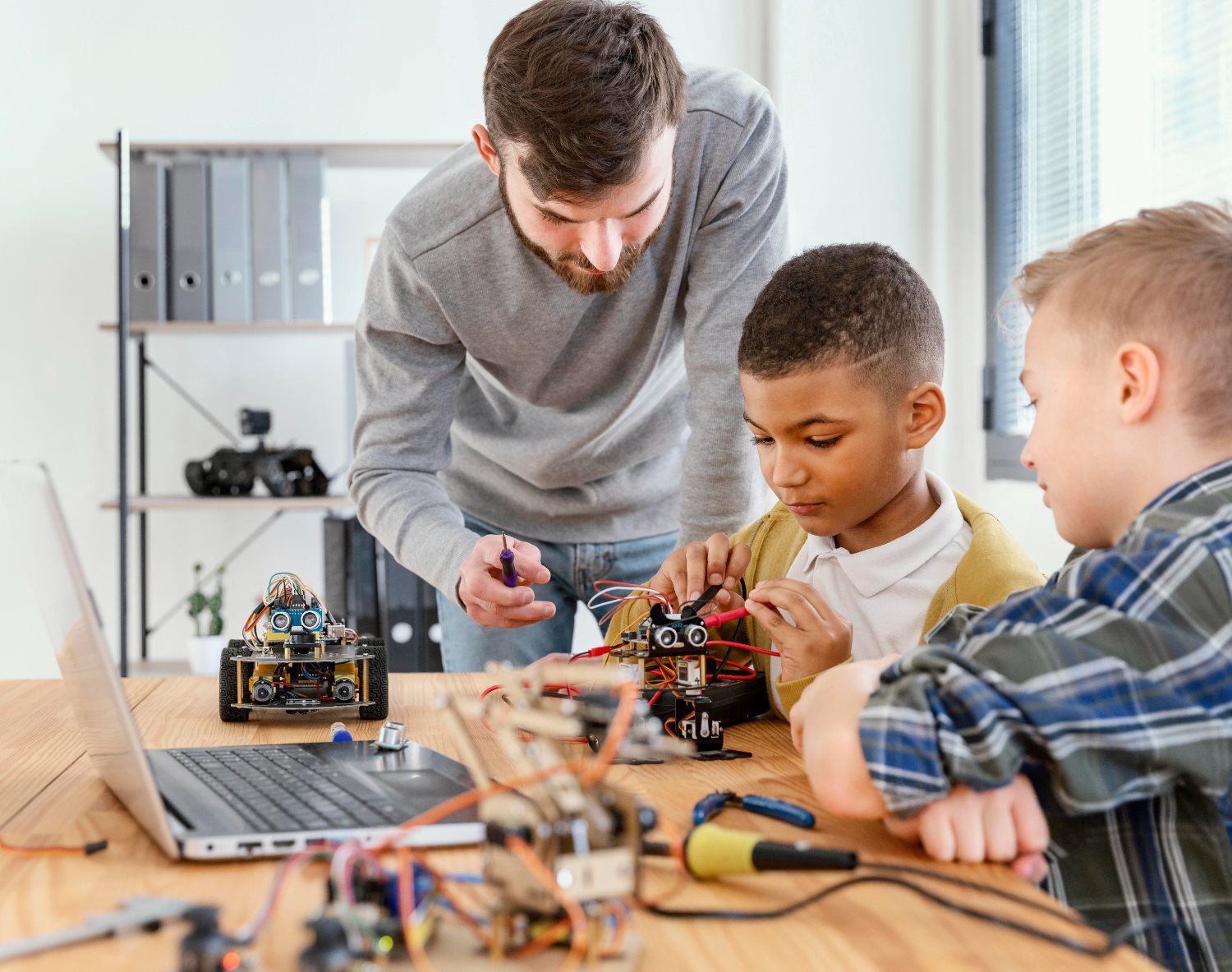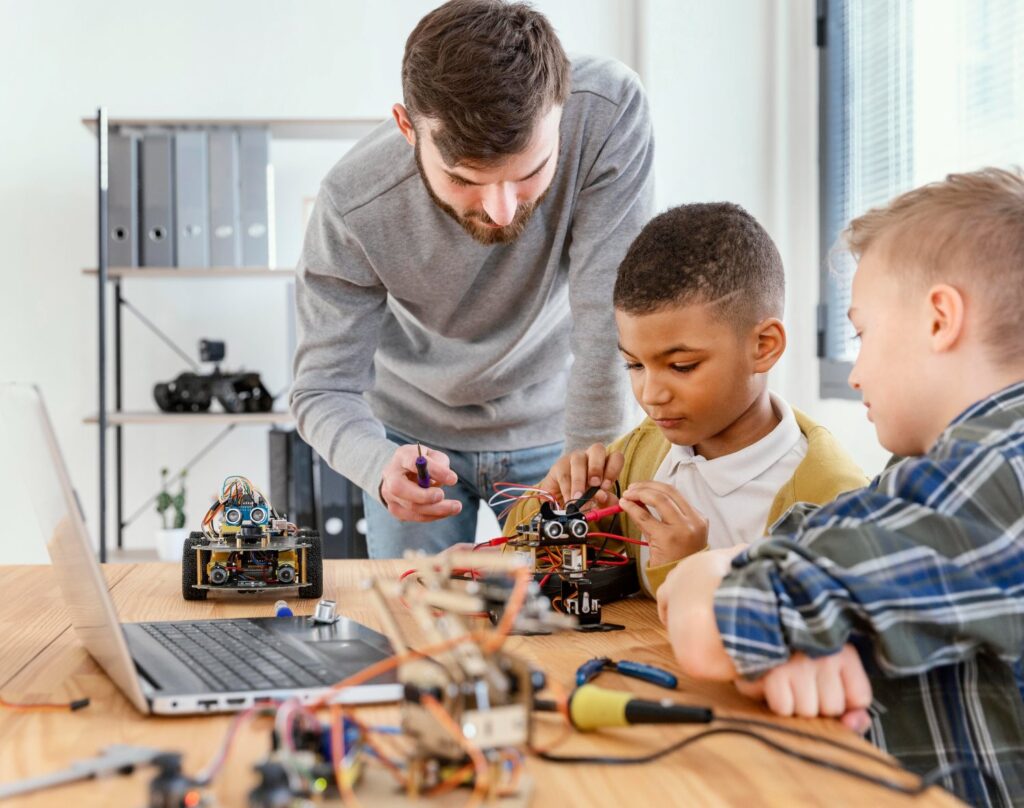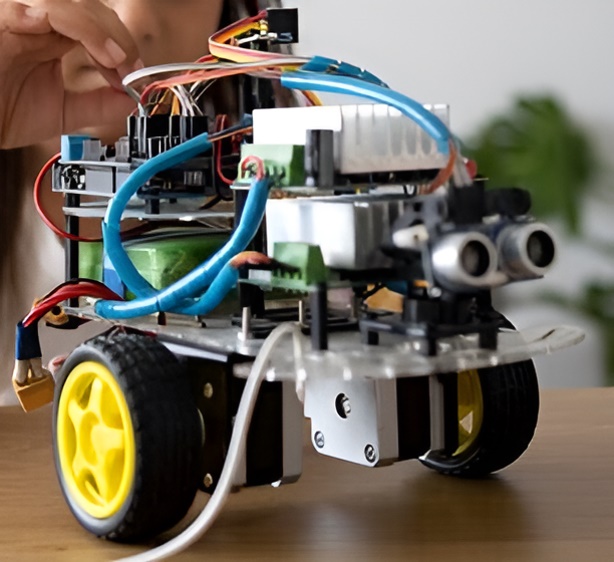
Fundamental Robotics Skills
Our robotics program covers essential topics that provide a deep understanding of robotics. Students explore mechanical design principles, where they learn how gears, motors, and structures come together to form functional machines.
Advanced Robotics Tools and Technologies
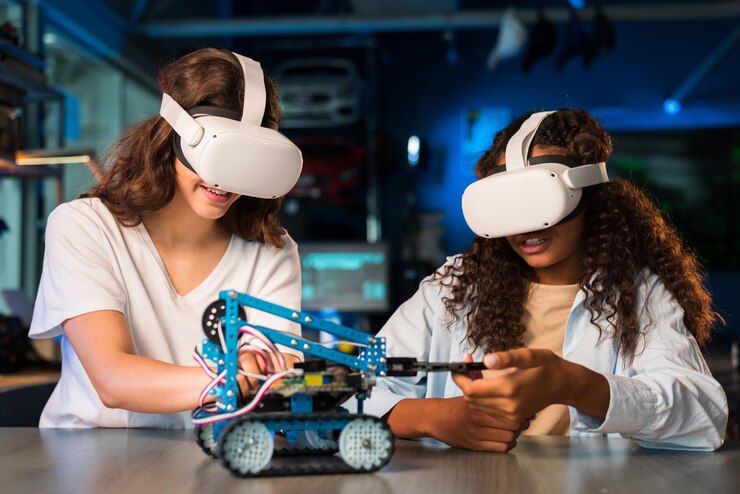
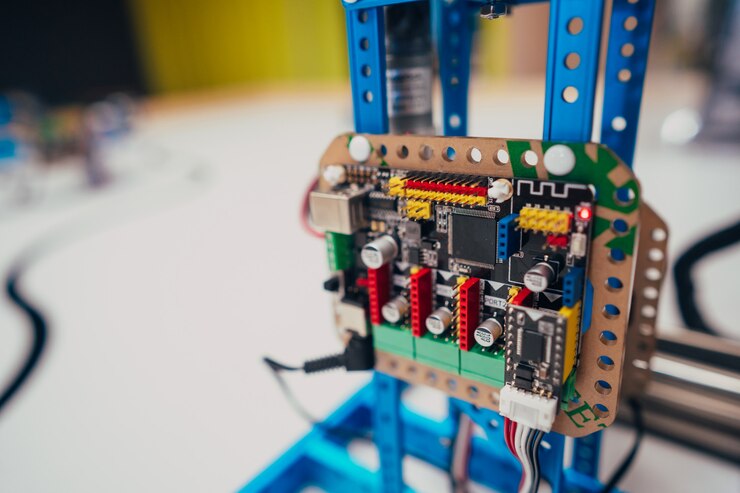
Our robotics program incorporates advanced tools and technologies that are shaping the future of robotics. Students gain hands-on experience with cutting-edge components such as sensors, motors, and actuators, which are critical for creating intelligent robotic systems. They also explore the role of artificial intelligence (AI) and machine learning in enhancing robot capabilities, allowing robots to adapt and make decisions based on their environment.
Key Features of Our Robotics Program
Our Robotics Program offers a comprehensive learning experience, combining hands-on projects with theoretical knowledge. Students work with advanced tools like sensors, motors, and AI to build and program robots.
Hands-On Learning
Our program emphasizes practical, real-world projects that allow students to directly apply their knowledge.
Core Robotics Concepts
In our program, students explore essential robotics principles such as mechanical design, sensor integration, and programming.
Cutting-Edge Technologies
Our robotics program integrates the latest advancements in robotics, including artificial intelligence, machine learning, and sensor technologies.
Team-Based Projects
Our robotics program encourages collaboration through team-based projects, where students work together to design, build, and program robots.
Career Preparation
The robotics program equips students with essential skills for careers in robotics, automation, and AI.
Mentorship & Support
Students receive personalized guidance from experienced mentors throughout their robotics journey.
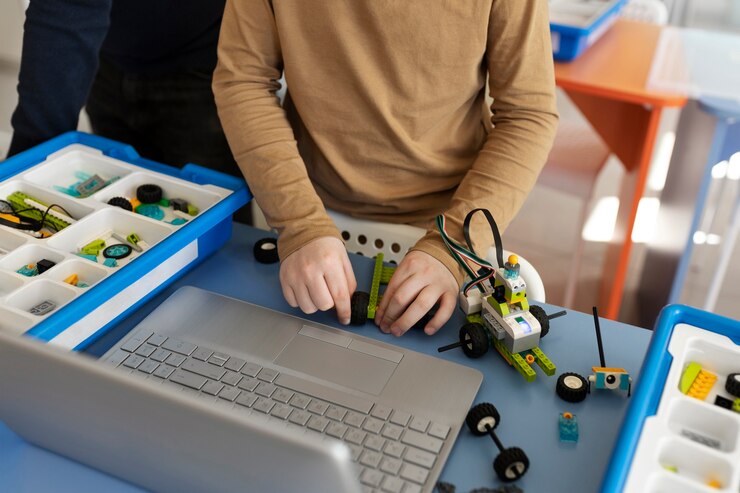
Career Pathways in Robotics
The robotics program opens diverse career pathways in fields such as automation, artificial intelligence, and robotics engineering. Graduates can pursue roles like robotics engineer, automation specialist, AI developer, or mechatronics technician. By gaining hands-on experience with cutting-edge technologies and developing problem-solving skills, students are well-equipped for a wide range of opportunities in industries such as manufacturing, healthcare, and technology development. The program provides a solid foundation for those looking to innovate and drive advancements in robotics.

